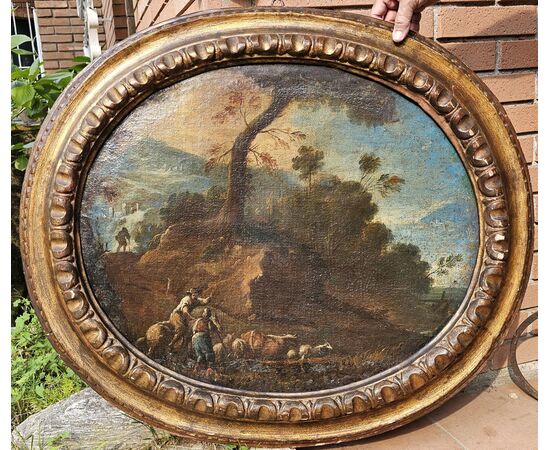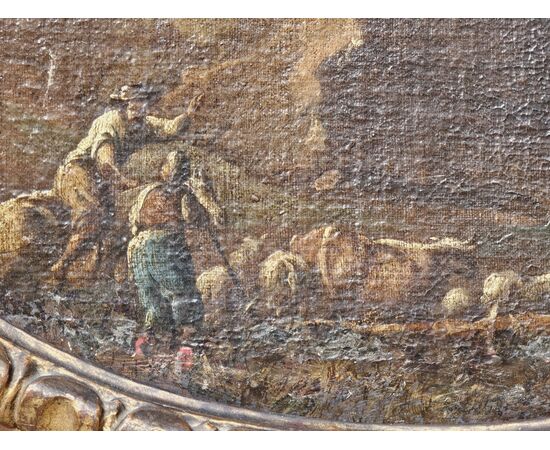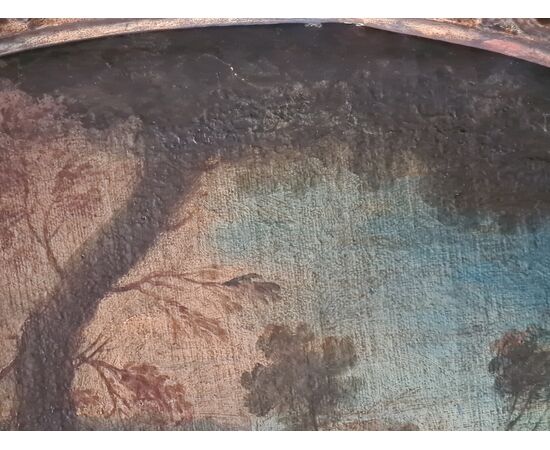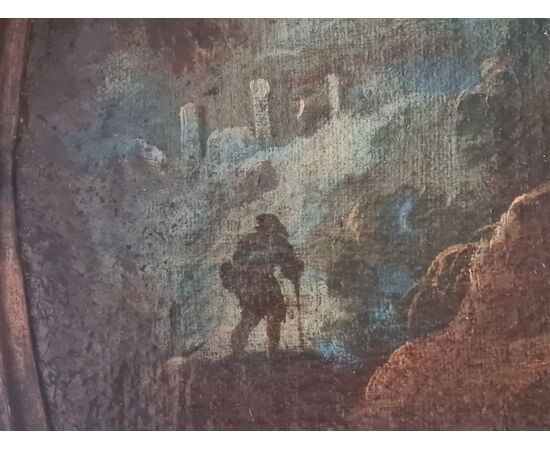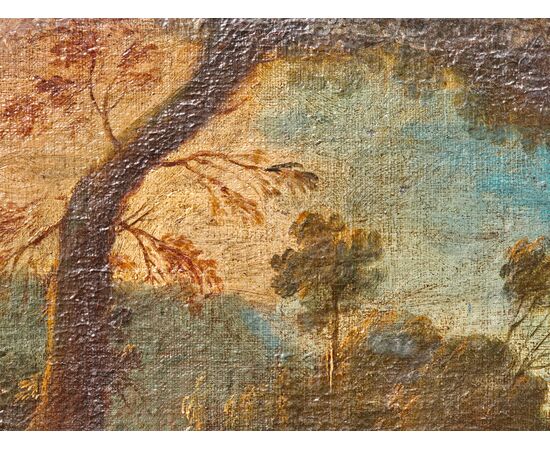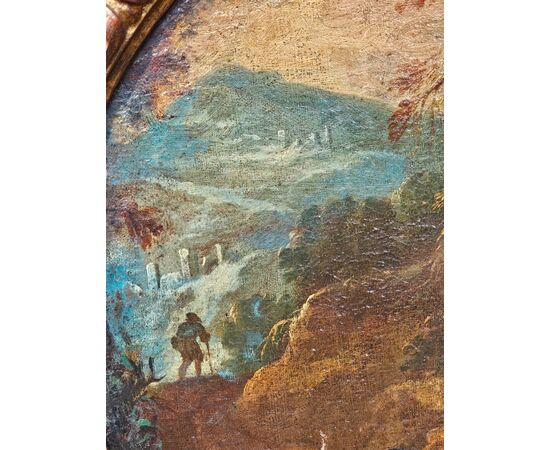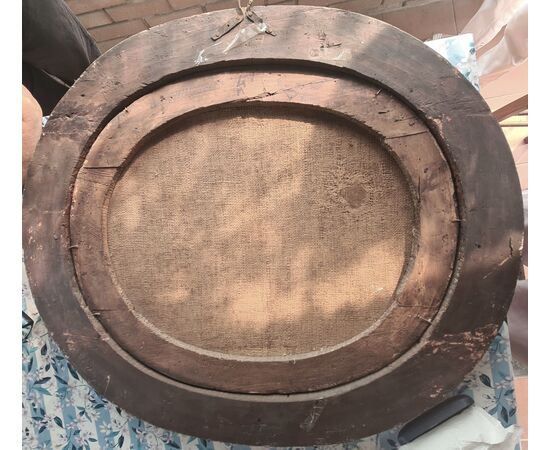LANDSCAPE. ROMAN SCHOOL LATE 17TH CENTURY
"Landscape with goats, herds and wayfarers at the ford" Relined with reinforcing canvas.
FOLLOWER in the style OF CARLO ANTONIO TAVELLA of the Roman period.
The painting is in good condition, complete with a beautiful antique gilded frame (on which there are some slight abrasions). A cleaning restoration of the work would make the painting more legible and increase its commercial value.
Canvas dimensions cm h. 62x75 with frame 83x96.
The stylistic analysis of the canvas allows us to find correlations with some paintings by
Carlo Antonio Tavella (Milan, 1668 – Genoa, 1738) Italian painter of the Baroque period
Photo b In the wayfarer bent over his stick, executed with a few precise brushstrokes, of great effect and mastery, in contrast with the light that frames him, we also find a relationship with some figures of Tempesta.
Photo c Characters, peasants intent on fording a river with their herds, the tall tree positioned in the center of the painting (often also present and in a central position, in Tavella's works) with the rock that seems to challenge the observer. All this creates a central point in the representation, from the sides depart two different perspectives of a distant landscape; one to the left highlighted with mastery by the wayfarer, who is heading towards the village drawn on the horizon, and on the left is outlined the idea of a stream that leads to a river.
Carlo Antonio Tavella's work, his pictorial creations were certainly determined by the artist during his stays in central Italy, and deeply influenced by the courtly language of Tempesta.
Tavella's pictorial production appears characterized by a uniform language, often repetitive, to satisfy a commission that appreciated his peaceful and harmonious compositions. The human presence, sacred, mythological or simply peasant, is often inserted in vast classicizing landscapes, which reveal a punctual relationship with the Roman results of Claude Lorrain and Gaspard Dughet, perhaps known by the painter even directly on the occasion of his probable trip to Rome.

